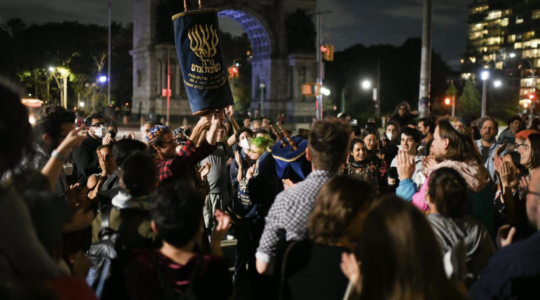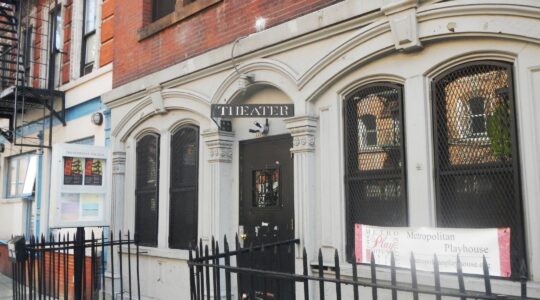The Genesis Philanthropy Group, best known for the $1 million Genesis Grant awarded to a member of the Jewish community who has achieved international renown in his or her chosen field (ex-Mayor Bloomberg was the first recipient), recently announced the promotion of Ilia Salita, the organization’s North American executive director, to CEO. In his new position, Salita, a native of Russia, will lead the private foundation’s global initiative to “develop and enhance a sense of Jewish identity among Russian-speaking Jews.”
The Jewish Week interviewed Salita by email. This is an edited version of the transcript.
Q: It’s now about a quarter century since the Soviet Union fell — longer since Soviet Jews began coming to the United States and other Western countries in large numbers. Why is there still a need for a separate organization to “enhance” the Jewish identity of Russian-speaking Jews?
A: Russian Jews are a unique group, with a specific heritage and a distinctive identity. There are other such groups, whose diversity comprises the landscape of world Jewry. Some of these groups, including Russian-speaking Jews, in many ways, are at most risk for assimilation and, yet, remain underserved. There is a need for not just one, but a cohort of organizations focused on supporting programs which meet their distinctive needs and build bridges to the larger Jewish peoplehood.
What difference have you noticed, in terms of Jewish identity and practice, between Russian-speaking Jews who grew up in the USSR, and those younger ones who grew up in the U.S.?
Even second- and third-generation Jews descending from the former Soviet Union retain strong binding connections with their Russian Jewish heritage; while linguistic differences often fade, cultural connections endure. For them, this heritage is a potential avenue for engagement and quite frequently, we see the prominence of heritage and culture especially among those who are least affiliated and least engaged Jewishly.
Most of the major Jewish organizations that reach out to Russian-speaking Jews continue to be headed by members of that community. Do you have to be one of them to understand them — do American-born Jews not “get” Russian-speaking Jews?
There are many organizations, directed by American-born Jews, which have had a strong record of success in the Russian-speaking Jewish community: Moishe House, Foundation for Jewish Camp, Young Judea’s Tel Yehuda, PJ Library and The JCC in Manhattan, to name just a few. But it is true that a profound understanding and deeply rooted passion for the Russian-speaking Jewish community, along with an open-minded approach are required ingredients. Today, more often than not, such deep understanding and passion manifest themselves more powerfully among Russian-speaking Jewish professionals.
People who grew up in the former Soviet Union, in a society where the government provided everything, famously had little opportunity to learn about the charity-begins-at-home ethos or about private charity organizations. Are members of the emigre community still more reluctant than other Jews to contribute to tzedakah?
In some ways, yes, but we have seen and continue to see many examples of the opposite. The Russian-speaking Jewish community came together tremendously to help victims of [Hurricane] Sandy.
You’re a native of Russia. What led you to a strong Jewish identity and a career in Jewish communal work? What lessons from the arc of your life do you apply on the job?
While “traditional” forms of Jewish life were not on the table where I was growing up, when I was growing up, equal parts intellectual curiosity, sense of pride in my roots, ethical values and strong family were what my parents cultivated as “ingredients” of my Jewish identity.
Support the New York Jewish Week
Our nonprofit newsroom depends on readers like you. Make a donation now to support independent Jewish journalism in New York.
As far as I recall, when I was 5 (in Moscow) and my friends and I were asked who we want to be, everyone gave a typical answer: a doctor, or a cosmonaut, or a fireman. Naturally, I was the only one who said — I want to lead a Jewish foundation working with Russian-speaking Jewish communities around the world.




